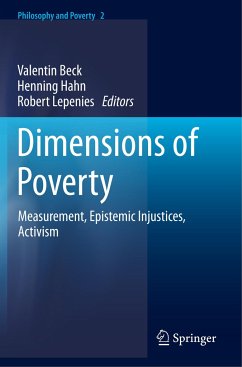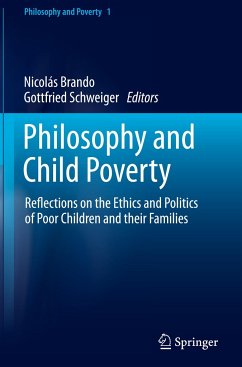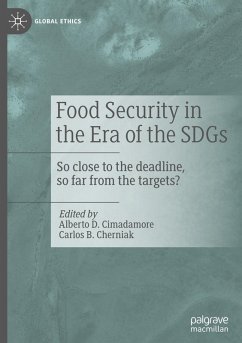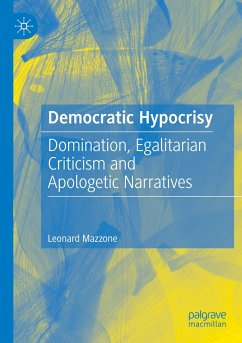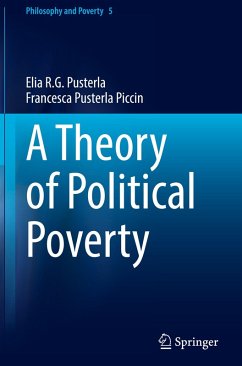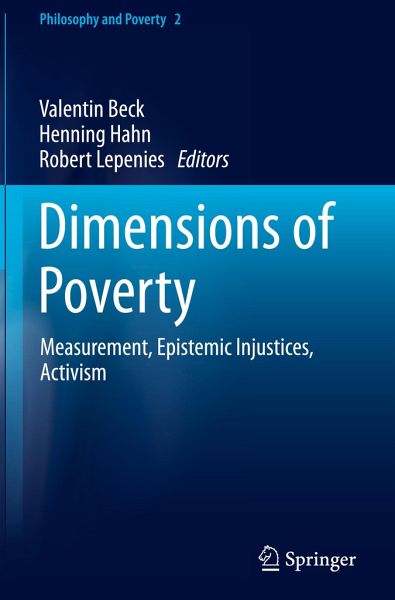
Dimensions of Poverty
Measurement, Epistemic Injustices, Activism
Herausgegeben: Beck, Valentin; Hahn, Henning; Lepenies, Robert

PAYBACK Punkte
38 °P sammeln!
This anthology constitutes an important contribution to the interdisciplinary debate on poverty measurement and alleviation. Absolute and relative poverty-both within and across state boundaries-are standardly measured and evaluated in monetary terms. However, poverty researchers have highlighted the shortfalls of one-dimensional monetary metrics. A new consensus is emerging that effectively addressing poverty requires a nuanced understanding of poverty as a relational phenomenon involving deprivations in multiple dimensions, including health, standard of living, education and political partic...
This anthology constitutes an important contribution to the interdisciplinary debate on poverty measurement and alleviation. Absolute and relative poverty-both within and across state boundaries-are standardly measured and evaluated in monetary terms. However, poverty researchers have highlighted the shortfalls of one-dimensional monetary metrics. A new consensus is emerging that effectively addressing poverty requires a nuanced understanding of poverty as a relational phenomenon involving deprivations in multiple dimensions, including health, standard of living, education and political participation.
This volume advances the debate on poverty by providing a forum for philosophers and empirical researchers. It combines philosophically sound analysis and genuinely global research on poverty's social embeddedness. Next to an introduction to this interdisciplinary field-which links Practical Philosophy, Development Economics, Political Science, and Sociology-it contains articles by leading international experts and early career scholars. The contributors analyse the concept of poverty, detail its multiple dimensions, reveal epistemic injustices in poverty research, and reflect on the challenges of poverty-related social activism. The unifying theme connecting this volume's contributions is that poverty must be understood as a multidimensional and socially relational phenomenon, and that this insight can enhance our efforts to measure and alleviate poverty.
This volume advances the debate on poverty by providing a forum for philosophers and empirical researchers. It combines philosophically sound analysis and genuinely global research on poverty's social embeddedness. Next to an introduction to this interdisciplinary field-which links Practical Philosophy, Development Economics, Political Science, and Sociology-it contains articles by leading international experts and early career scholars. The contributors analyse the concept of poverty, detail its multiple dimensions, reveal epistemic injustices in poverty research, and reflect on the challenges of poverty-related social activism. The unifying theme connecting this volume's contributions is that poverty must be understood as a multidimensional and socially relational phenomenon, and that this insight can enhance our efforts to measure and alleviate poverty.



